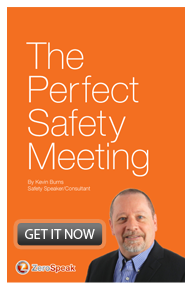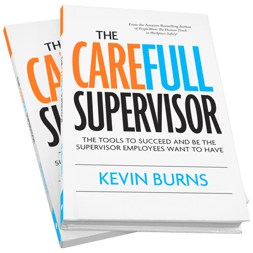To be a safety leader, you have to be better at the job than the others.
 The best organizations give world-class safety performance. They don't do it with a mediocre effort, mediocre standards or mediocre supervisors and safety people. They do it by surpassing industry average targets, a focused engagement with employees and with safety people and supervisors on top of their game. Those companies search out and employ supervisors and managers who set a higher standard for themselves. They seek out those who want to inspire their own crews to be better, to reach farther, to achieve at a higher level.
The best organizations give world-class safety performance. They don't do it with a mediocre effort, mediocre standards or mediocre supervisors and safety people. They do it by surpassing industry average targets, a focused engagement with employees and with safety people and supervisors on top of their game. Those companies search out and employ supervisors and managers who set a higher standard for themselves. They seek out those who want to inspire their own crews to be better, to reach farther, to achieve at a higher level.
You don’t build championship teams by shooting for the middle of industry averages. You don’t instill a positive safety culture by settling for average performance. To lead, you have to do not just what others are not doing, but by doing what they’re not even prepared to do.
World-class safety is driven by wanting higher standards. Higher standards drive greater effort. Greater effort is driven by higher-performing safety people and supervisors. World-class safety is not achieved by a mediocre effort, standards or people who don’t seek to be exceptional. Without exceptional people and standards, you're shooting for mediocrity. You will become world-class by luck.
Here's the problem. Not every safety person is a high-performer. Like every other industry and profession, there are below-average and average performers. Then, there’s the top echelon; the elite - the leaders. Which of those sounds like you? How about a short self-assessment?
Here are three main reasons that many fail to become leaders:
1They're satisfied with mediocrity. Not outwardly of course. No, they'll say they have high expectations. But, when the target is to achieve the industry average, they're shooting for the middle of the pack. That's not leadership. To hit the industry average takes only a few small tweaks and adjustments to the safety plan. It's easy. In fact, you can copy another company’s safety plan and come close to the average. Once within the average, there is little motivation to seek beyond that. Mediocrity takes over. This is where “good enough” lives. Unfortunately, once you hit the industry average, complacency usually follows. If you’re not growing, you’re falling behind. Leaders grow.
2They believe that someone else should pay to make them better. The company will train you to a level of competence. Excellence (elite), though, is a personal choice beyond that. You will be paid in direct proportion to what the market believes you are worth. You will be recruited and hired and laid-off in direct proportion to what the market believes you are worth. You must make a personal investment in yourself. Improve your management skills, your business acumen and your leadership ability. Otherwise, you will be picked for the mediocre positions. Leaders, meanwhile, get hired for the elite positions. Leaders get the ear of senior management. They become trusted advisers. They bring a new perspective to the job. It's a mix of safety knowledge, leadership, business and personal traits that shout “expert.” Invest in yourself and pay your own way into the elite performer category.
3They lack the skills and confidence to get personal. Mediocre performers rely on cerebral traits. Management style is primarily focused on rules, process and procedure. Safety meetings focus on reports, paperwork and inspections. Little effort is spent on appealing to employee engagement or motivation. Not because they don't want to. But because they simply lack the skills. It is difficult for anyone who lacks coaching and motivation skills to create a team of high-performers. Employees are not inspired by PowerPoint slides of inspection reports. Nor does guilt inspire (i.e. there’s a family waiting for you at home, etc). Guilt gets compliance - the bare minimum. To achieve high-performance requires a different set of skills. Your employer will not furnish you with these skills. You will have to acquire them on your own - and you will be better; more valuable as a result.
Safety leaders treat their careers like professional athletes do. They hone their skills. They attend the conferences. They read the books. They go outside for resources that help. That includes more leadership skills, management training, communications classes/books. They take it personally when the company misses their targets.
 To surpass the current industry leaders, you have to up-your-game. You have to be better than the other 99% of safety people and supervisors. Membership in the top 1% requires two things: commitment and personal investment. Your results change dramatically when you choose to become a safety leader. When you do, you will take your team along with you.
To surpass the current industry leaders, you have to up-your-game. You have to be better than the other 99% of safety people and supervisors. Membership in the top 1% requires two things: commitment and personal investment. Your results change dramatically when you choose to become a safety leader. When you do, you will take your team along with you.
Kevin Burns has authored ten books on human performance and safety, including his most recent release, PeopleWork - The Human Touch in Workplace Safety. Buy it now on Amazon. Then, consider bringing Kevin's consulting expertise to your company or have him speak at a safety event.
©2017 ZeroSpeak Corporation and Kevin Burns.
No part of this post may be reproduced without the expressed consent of the author.


